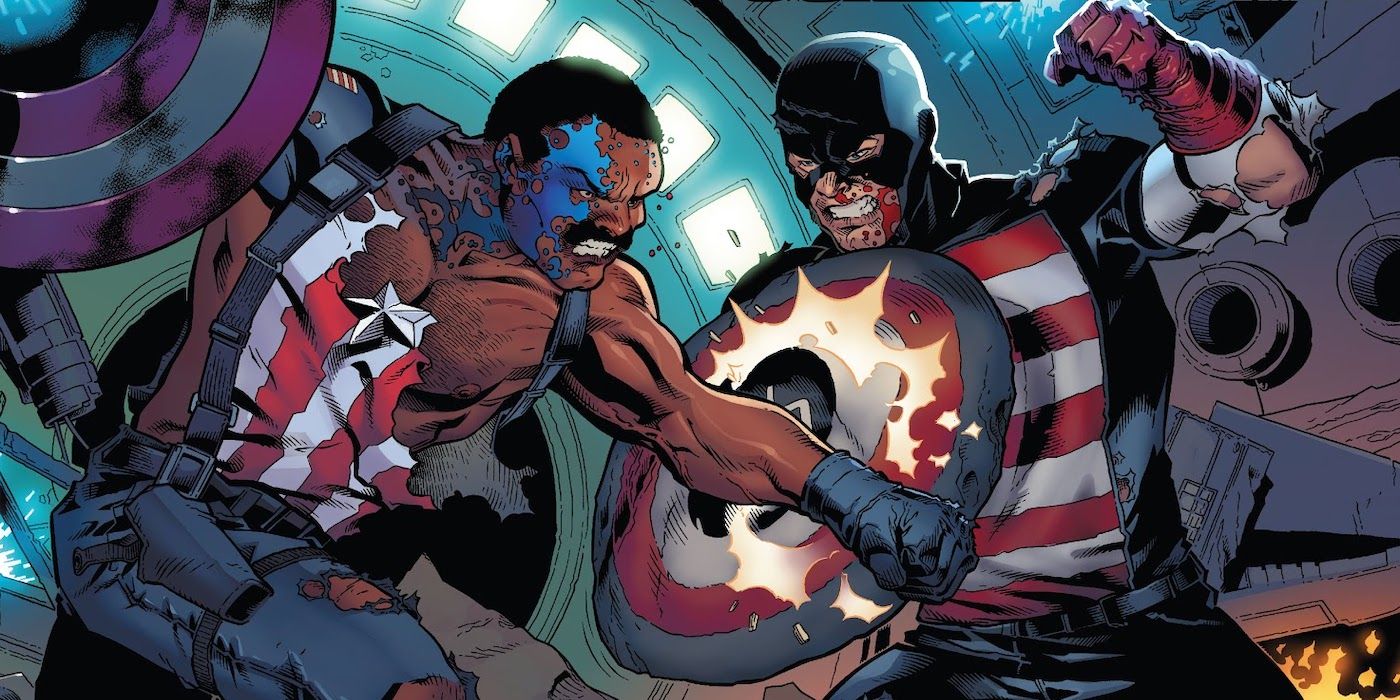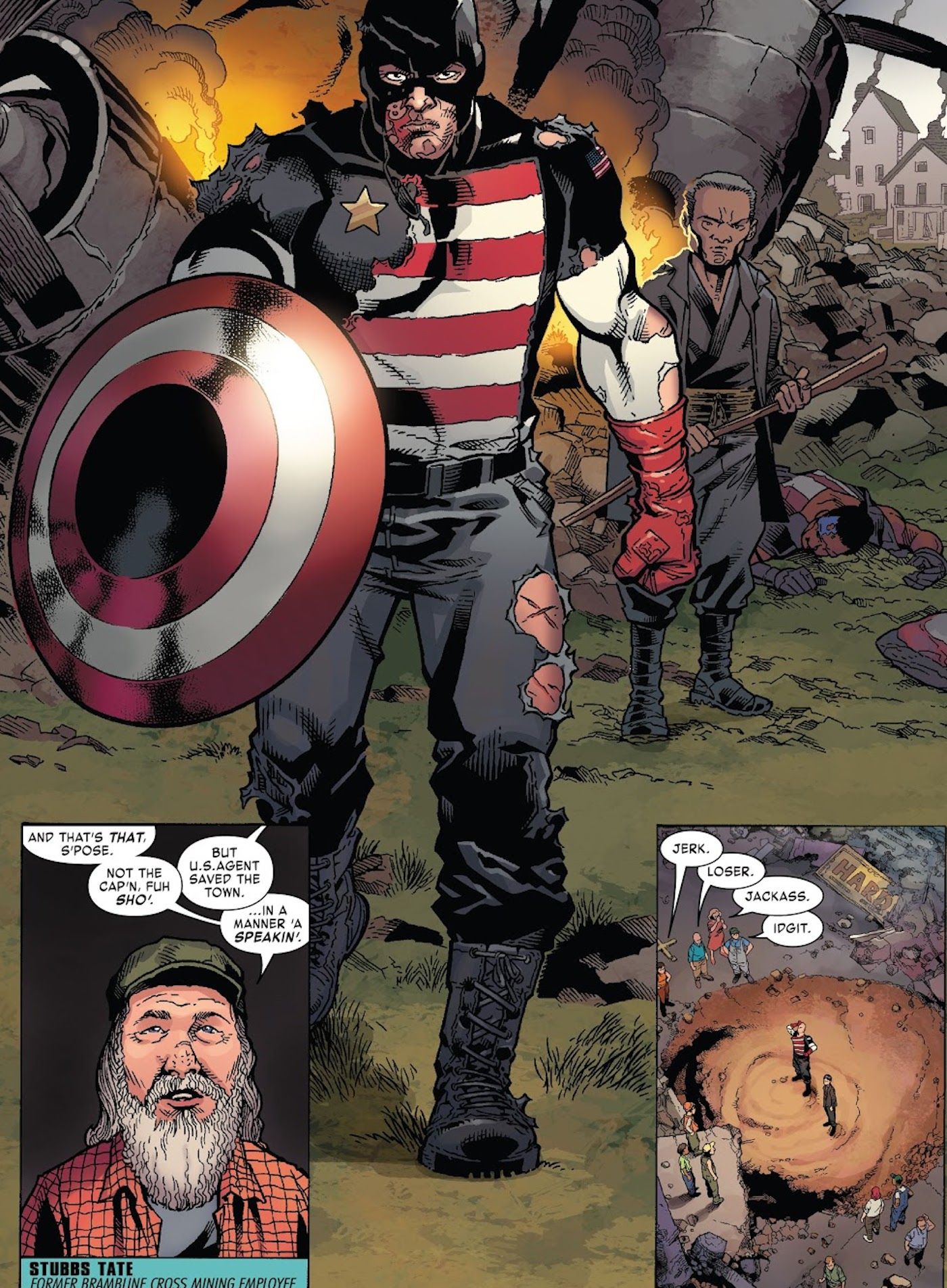Warning! Spoilers for U.S.Agent #5 ahead!
U.S.Agent may be a pale imitation of the legendary Captain America, but the state-sponsored crimefighter has finally earned his keep as a real superhero. While under the guise of the U.S.Agent, John Walker has worked as a U.S. government operative following orders from government officials in an often far more brutal way than Steve Rogers ever would. U.S.Agent #5 shows that John Walker has continued to grow as a character while retaining his own identity distinct from Captain America’s.
U.S.Agent has often been portrayed as a more violent, almost unhinged version of Captain America. Since his first appearance in Captain America #333 (1987), Walker has always been a patriotic and flawed man who attempts to fill Steve Rogers’ shoes and consistently falls short. He often lacks Steve Rogers’ self-control and maturity, often characterized at the loss of his friend and ally Lemar Hoskins (Battlestar) which was more recently showed off in the television series Falcon and The Winter Soldier when Walker brutally murders one of the criminals responsible for Hoskins’ death. John Walker in his time as U.S.Agent often tries to be a good man, yet he and the reader are constantly reminded of his shortcomings.
U.S.Agent: American Zealot by writer Christopher Priest and penciller Georges Jeanty, begins with John Walker serving as a U.S. government agent following the directions of his handler. Walker is sent to rural West Virginia where he finds his estranged sister, Kate, and his prospective replacement, April Manning. After disobeying orders and siding with protestors during a peaceful protest, Walker is stripped of his status, and Manning takes over as the U.S.Agent. Unbeknownst to Walker and the government, Manning and Kate are ruthless even compared to Walker at the start of his career and plan on utilizing an old S.H.I.E.L.D. helicarrier and kaiju to violently reshape America. In U.S.Agent #5, we see Walker heroically intervene yet again on behalf of the townspeople, acting more like a comic-book superhero than a government agent in a suit.
As U.S.Agent #5 marks the end of U.S.Agent: American Zealot, we see exactly how far John Walker has come from both his inception and the start of the series. While over the course of the series he has already shown that he is a different man, and able to think independently and defend the vulnerable, his true final test comes in U.S.Agent #5’s climactic battle against April Manning. After a hard fight against both Manning and his sister with thousands of lives at risk as the helicarrier and kaiju plummet towards a small West Virginian town, Walker triumphs and spares Manning. While it is implied that Manning dies anyway due to side-effects of a super-soldier serum he was taking to increase his fighting ability, Walker ultimately shows restraint and does not kick his opponent while he is down, as some of his other incarnations likely would have done. Instead, Walker simply takes his old shield back from his “replacement” before heading home and reveling in his newfound status as a “non-official” government agent.
While John Walker is a much more flawed man than Captain America, both men have a great sense of patriotism, duty, and honor. While most of the U.S.Agent’s portrayals show him as a man constantly bested by his worst impulses, in U.S.Agent #5 we finally see the man John Walker wants to be emerge. In turn, U.S.Agent is gradually becoming the patriotic superhero he aspires to be while retaining his distinct personality.


